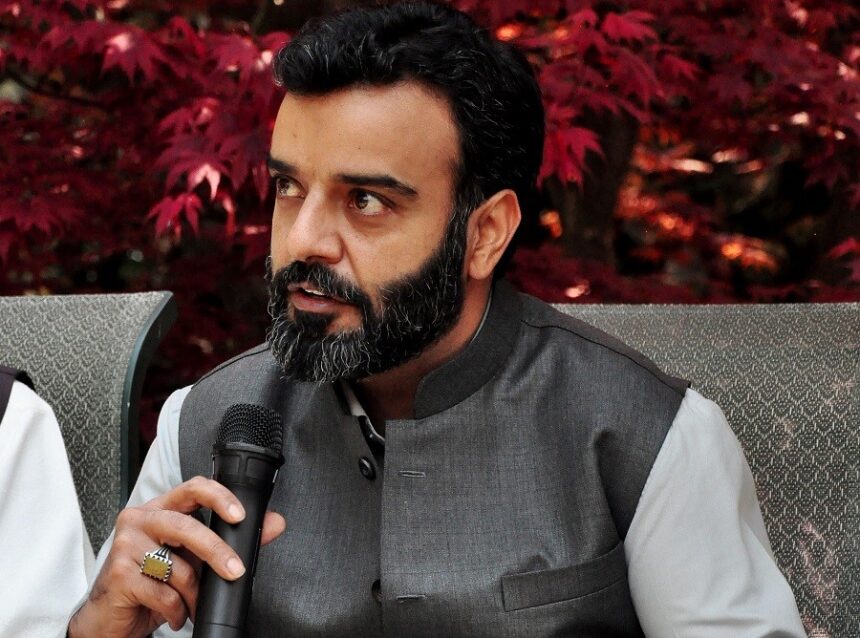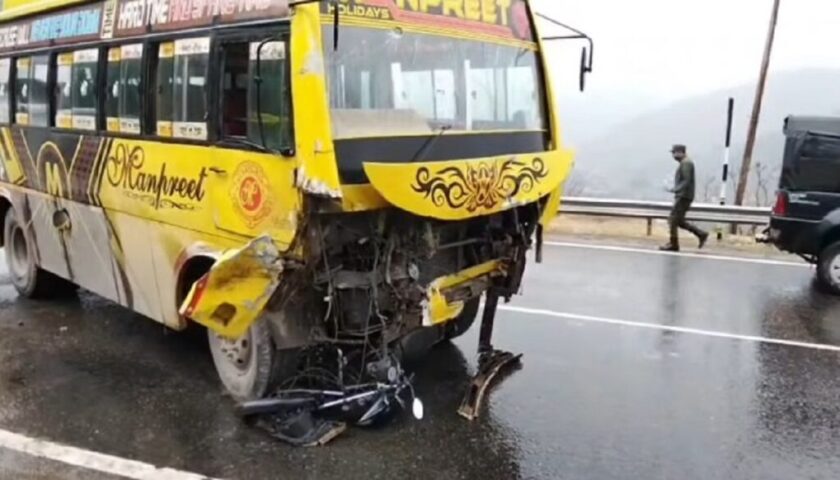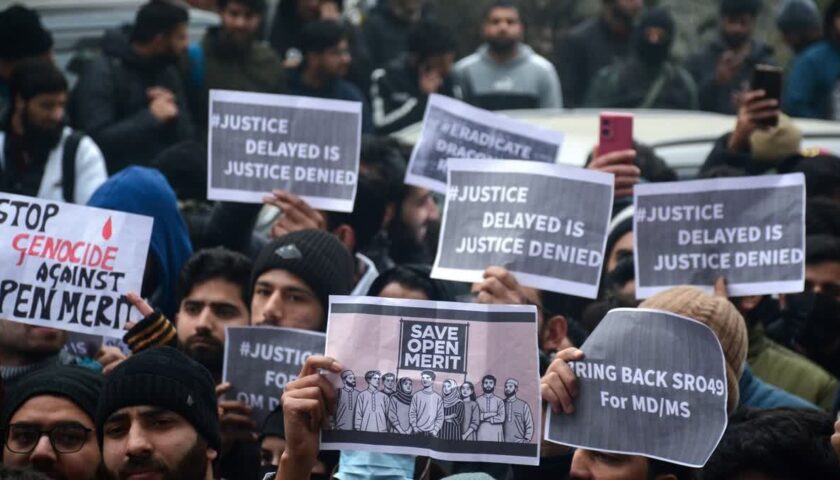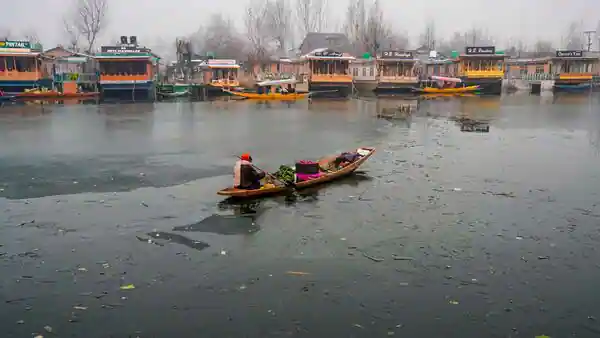Divided on Paper, United in Pain: How Kashmir and Ladakh Share a Common Struggle Under the BJP-RSS Regime
By: Javid Amin | 03 October 2025
A Voice from Kashmir to Ladakh
The Himalayan silence has been broken. On the turbulent faultline of Kashmir and Ladakh, a voice rises—calm yet piercing, mournful yet defiant. It belongs to Ruhullah Mehdi, senior National Conference (NC) leader and parliamentarian, who has emerged as one of the most uncompromising critics of Delhi’s post-Article 370 governance model.
His words have quickly become a rallying cry:
“The BJP & RSS regime might have divided us (Kashmiris & Ladakhis) geographically on paper, but they have united us in pain and suffering, subjugation and oppression.”
Mehdi’s statement is more than rhetoric. It’s a historical reckoning and a political bridge—linking the long-suffering valley with a restive Ladakh now facing its own crisis of identity, autonomy, and dignity.
Kashmir’s Long Night of Pain
For decades, Kashmiris have spoken of dispossession, suppression, and disenfranchisement.
-
Article 370 Abrogation (2019): Once a constitutional safeguard, scrapped overnight.
-
Statehood Downgrade: A full-fledged state reduced to a Union Territory under central control.
-
Militarized Governance: The heavy presence of troops and central agencies redefining daily life.
-
Silenced Voices: Journalists jailed, political leaders detained, dissent branded as sedition.
This reality, Mehdi argues, was never just a Kashmiri story. It was a warning of what unchecked centralization could mean for others.
“When we cried injustice,” he says, “everyone else thought it’s only upon Kashmiris. But today from Ladakh to Kanyakumari, people are slowly but surely being subjected to the miseries we have long endured.”
Ladakh’s Awakening
In Ladakh, celebrated in tourist brochures for its mountains and monasteries, another truth brews. The creation of a Union Territory in 2019 was initially hailed as recognition of Ladakhi identity. But six years later, that optimism has collapsed into frustration.
-
Statehood Denied: Ladakh remains without an elected assembly, governed directly from Delhi.
-
Sixth Schedule Ignored: Demands for constitutional safeguards for land, resources, and culture remain unmet.
-
Police Firing in Leh (2025): The deaths of four protesters, including a Kargil War veteran, shocked the conscience of the nation.
-
Arrests and Crackdowns: Activists like Sonam Wangchuk detained, dissent treated as disruption.
For many Ladakhis, what Kashmiris once warned about has now arrived at their doorstep.
Mehdi’s Message of Unity
Against this backdrop, Ruhullah Mehdi’s solidarity statement carries moral weight.
“We in Kashmir never wanted any other society to experience this pain. We only wanted to be heard. But today, Ladakh too bleeds. Though we were alone, we won’t let you be alone in your rightful cause and struggle.”
His words land at a critical juncture:
-
Kashmiris see their own reflection in Ladakh’s struggle.
-
Ladakhis realize their fight for dignity mirrors the Valley’s decades-long demand.
-
India at large is reminded that governance cannot be built on coercion alone.
From Regional Division to Shared Struggle
When Delhi bifurcated J&K into two Union Territories in 2019, it believed it was resolving competing identities. Kashmiris would be separated from Ladakhis, Leh from Kargil, Shia from Sunni, Buddhists from Muslims.
But Mehdi suggests the opposite has occurred. The “geographic division” has given way to a shared emotional and political unity in pain:
-
Disempowerment: Both regions stripped of legislative autonomy.
-
Cultural Insecurity: Ladakh fears ecological and demographic dilution; Kashmiris fear erasure of identity.
-
Centralization of Power: Lieutenant Governor-led bureaucracies accountable only to Delhi.
A Wider Indian Context
Perhaps the most striking part of Mehdi’s statement is his pan-Indian lens.
“From Ladakh to Kanyakumari,” he warned, “people are slowly but surely being subjected to the miseries and subjugation that Kashmiris have been subjected to since long ago.”
This is not just a Kashmiri or Ladakhi concern. It is a cautionary tale for the whole Republic:
-
Protests met with bullets.
-
Dissenters labeled anti-national.
-
Faith and culture politicized.
By tying Kashmir and Ladakh’s pain to India’s democratic decline, Mehdi repositions the debate: it is about citizenship, not separatism; about dignity, not geography.
Implications for Politics
As J&K heads toward elections and Ladakh’s agitation intensifies, Mehdi’s intervention could shift the political landscape.
-
For the NC: It signals a new moral positioning, beyond traditional power politics.
-
For Ladakh: It offers solidarity from Srinagar, bridging historic divides.
-
For the BJP: It exposes the gap between “development narrative” and lived realities.
Delhi’s challenge will be to decide whether it wants control or consent.
Bottom-Line: A New Himalayan Solidarity
Ruhullah Mehdi’s words are not just a speech—they are a political parable.
For decades, Kashmir warned of the dangers of governance built on force rather than dialogue. Few listened. Now, as Ladakh grapples with statehood protests, detentions, and bloodshed, that warning has transformed into solidarity.
The mountains of Kashmir and Ladakh, once divided by cartography, now echo with a single truth: pain unites where politics divides.
And in that unity, Mehdi reminds both regions—and India at large—that the struggle is not for geography but for dignity, not for territory but for people.




